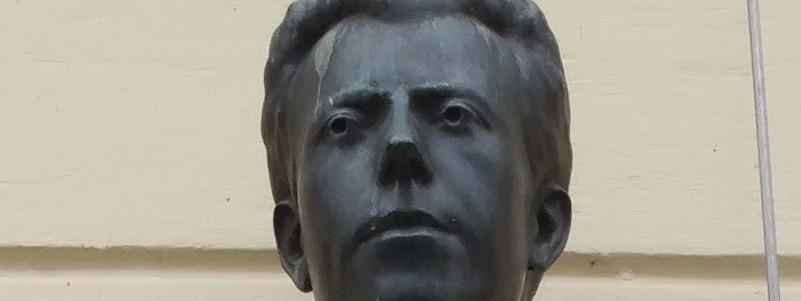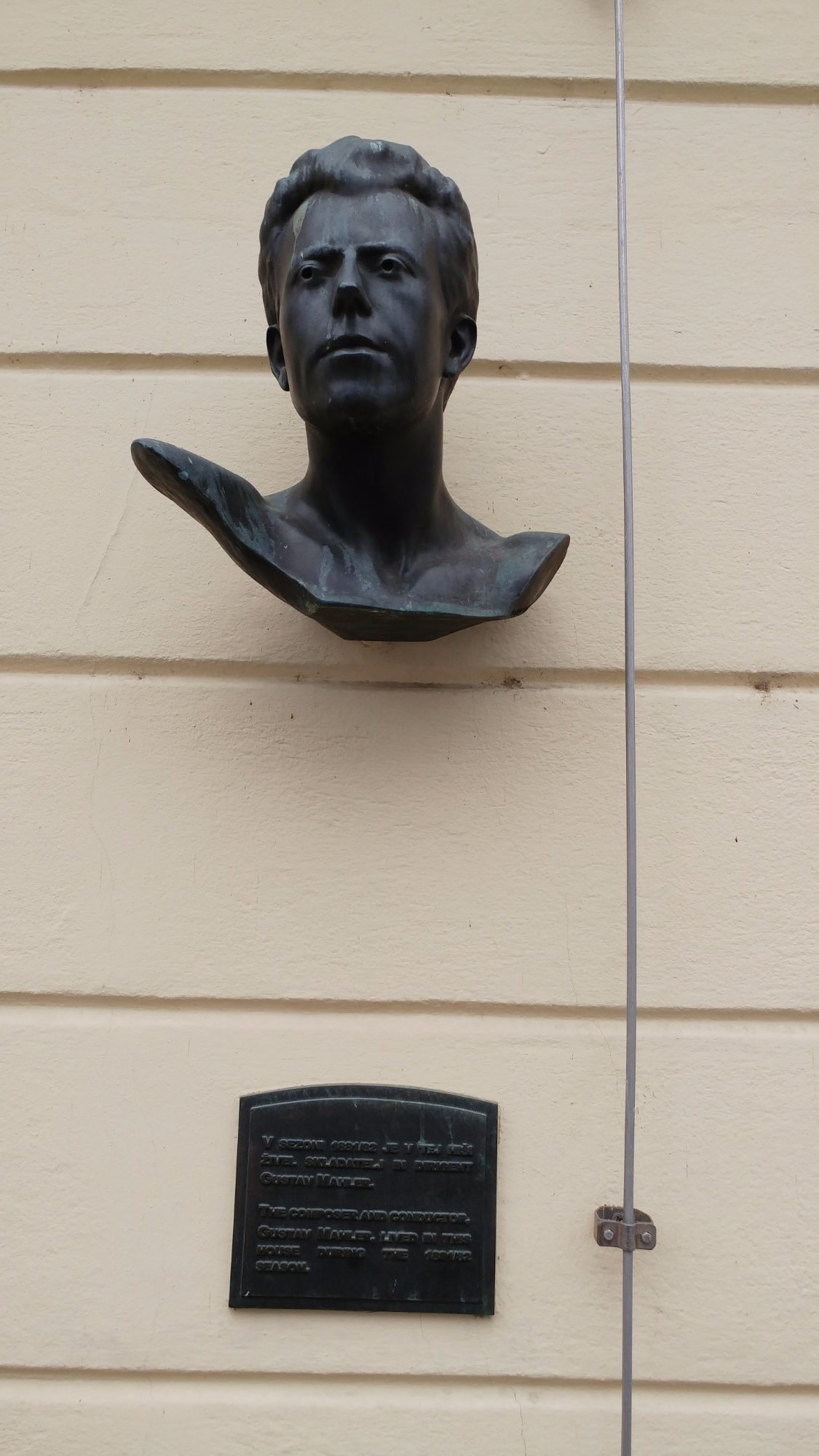A bust of Gustav Mahler was erected in 2001 in Mestni trg Square. Made by Bojan Kunaver, a connoisseur and admirer of Gustav Mahler, the sculpture adorns the façade of the building (No. 17) where Mahler stayed between 1881 and 1882 with the respectable merchant family of his friend, Anton Krisper.
Gustav Mahler
Regarded as one of the leading late-Romantic composers, Gustav Mahler’s (1860–1911) Symphony No. 1 from 1889 heralded the outburst of a stylistic plurality at the turn of the nineteenth century (fin de siècle). Embracing innovation in terms of compositional technique, composers nevertheless remained faithful to the aesthetic principles of Romanticism, which cultivated as its core an ideal of idiosyncratic, subjective expression. This tendency is reflected in Mahler’s monumental symphonies and lieder, which principally served as a vehicle for the composer’s personal worldview conveyed from his internal impulses.
During his lifetime, Mahler’s works were neither universally appreciated nor widely performed. He made an indelible impression on the musical landscape, first as the conductor and artistic director of the Vienna State Opera. The influences of this tyrannically disciplined, large-scale conductor, who envisioned innovative interpretations from his retouched scores by Beethoven, Mozart and Schumann, set the standards of music interpretation for contemporary conductors. Mahler’s demands introduced reforms into music institutions that have today entered the established canon of concert practice: reverential silence and dimmed lighting in the theatre during performances.
It all began in Ljubljana, a city in which Mahler most probably arrived on the initiative of his friend Anton Krisper, a native of the city. In the 1881/1882 season, the talented, 20-year-old Mahler conducted operatic and orchestral performances at the Ljubljana Provincial Theatre, thus raising the standards of music delivery and making a name for himself at his first major musical hub, an initiation that paved the way for his international career. The historical relevance of his compositions, the groundbreaking dimension of his music, was universally recognised in retrospect, as late as in the twentieth century, through the efforts and advocacy of the legendary composer Leonard Bernstein.
Maia Juvanc

